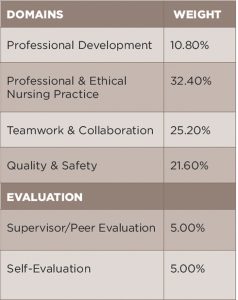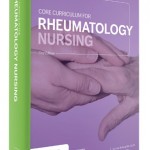
Rawpixel.com/shutterstock.com
Rheumatology nurses have a new option to obtain certification. Instead of taking an exam to demonstrate one’s competencies, rheumatology nurses can provide documentation of their expertise through an online application process, the American Nurses Credentialing Center’s (ANCC) Rheumatology Nursing Certification Through Portfolio. Launched in February 2016, the program was developed by the ANCC in collaboration with the Rheumatology Nurses Society and offers a convenient way for rheumatology nurses to document their expertise and gain certification that is then renewable every five years.
And it can be done without an exam. One advantage of this certification process over other types of certification methods is that it doesn’t require good test-taking skills, says Elizabeth A. Schlenk, PhD, RN, ARHP president and associate professor, University of Pittsburgh, School of Nursing, Pittsburgh, Pa. Another advantage, she says, is that it provides an “opportunity to showcase one’s unique strengths and history of professional development through the portfolio.”
This latter advantage is also its limitation. For nurses to use this credentialing method, they must have experience in their specialty before applying. “It takes time and effort to develop a satisfactory portfolio,” says Dr. Schlenk.
What is similar about this method of certification compared with other methods is its rigor. “Certification Through Portfolio requires rigor equivalent to that of examinations to meet accrediting bodies’ criteria to determine proficiency through a peer review process informed by nurse experts,” explains Lourdes B. Careaga, BSN, RN, senior healthcare product specialist, ANCC, Silver Spring, MD.
So what is Rheumatology Nursing Certification Through Portfolio, and how do nurses use it?
Certification Through Portfolio
The ANCC Rheumatology Nursing Certification Through Portfolio is the newest ANCC portfolio credential offered by the ANCC through its patented method for credentialing specialty nurses.1 It consists of four domains that capture the specialized knowledge, understanding and application of a professional nurse’s practice and theory, as well as performance evaluation requirements (see Table 1).
Ms. Careaga says the credential based on evaluation of these domains (and evaluation requirements) validates the competency of the rheumatology nurse. “The credential is based not only on meeting the eligibility requirements, but more importantly on the evidence submitted by the portfolio candidate that successfully meets the evaluation requirements of the rheumatology nursing specialty as described under each of the four domains,” she says.
Because nurses have to show competency in all domains, Dr. Schlenk emphasizes that the nurse applicant must be actively engaged in rheumatology to develop a satisfactory portfolio. (See “Online Courses to Expand Knowledge & Skills,” above.)
How Does It Work?
Nurses who apply for Certification Through Portfolio submit an online portfolio that documents evidence of their specialized skills and knowledge, as well as understanding and application, of professional nursing practice. Ms. Careaga emphasizes that the application is completely electronic.



